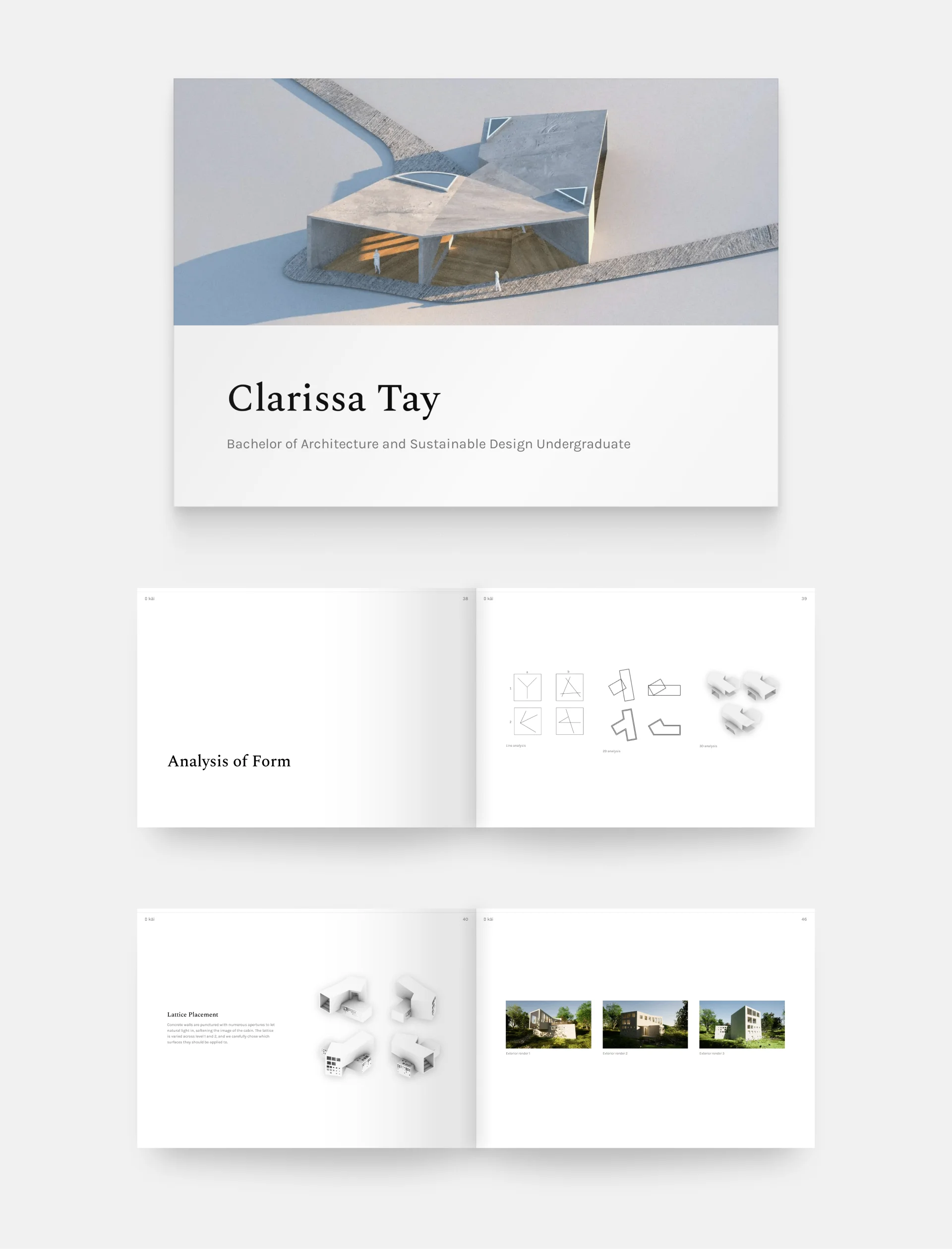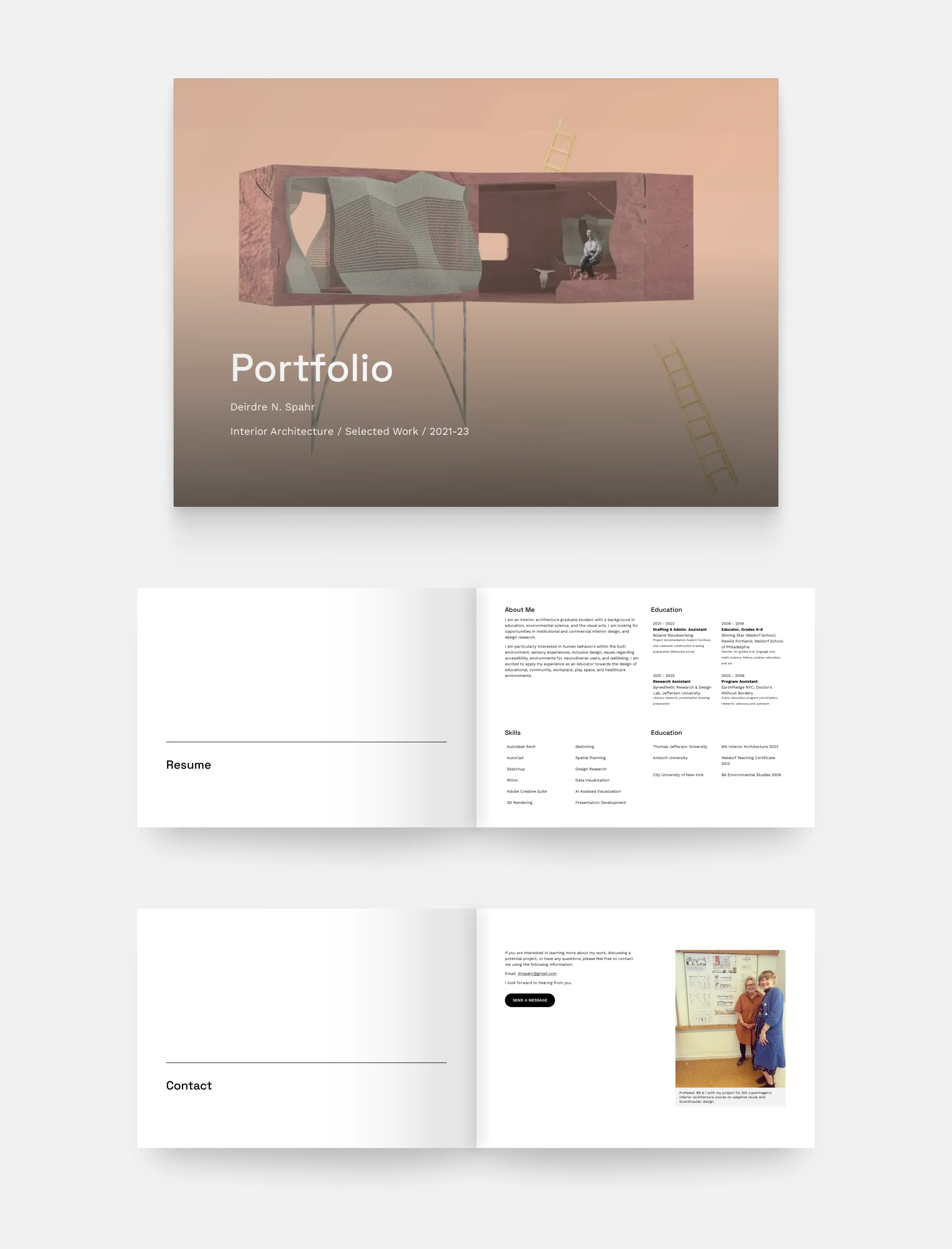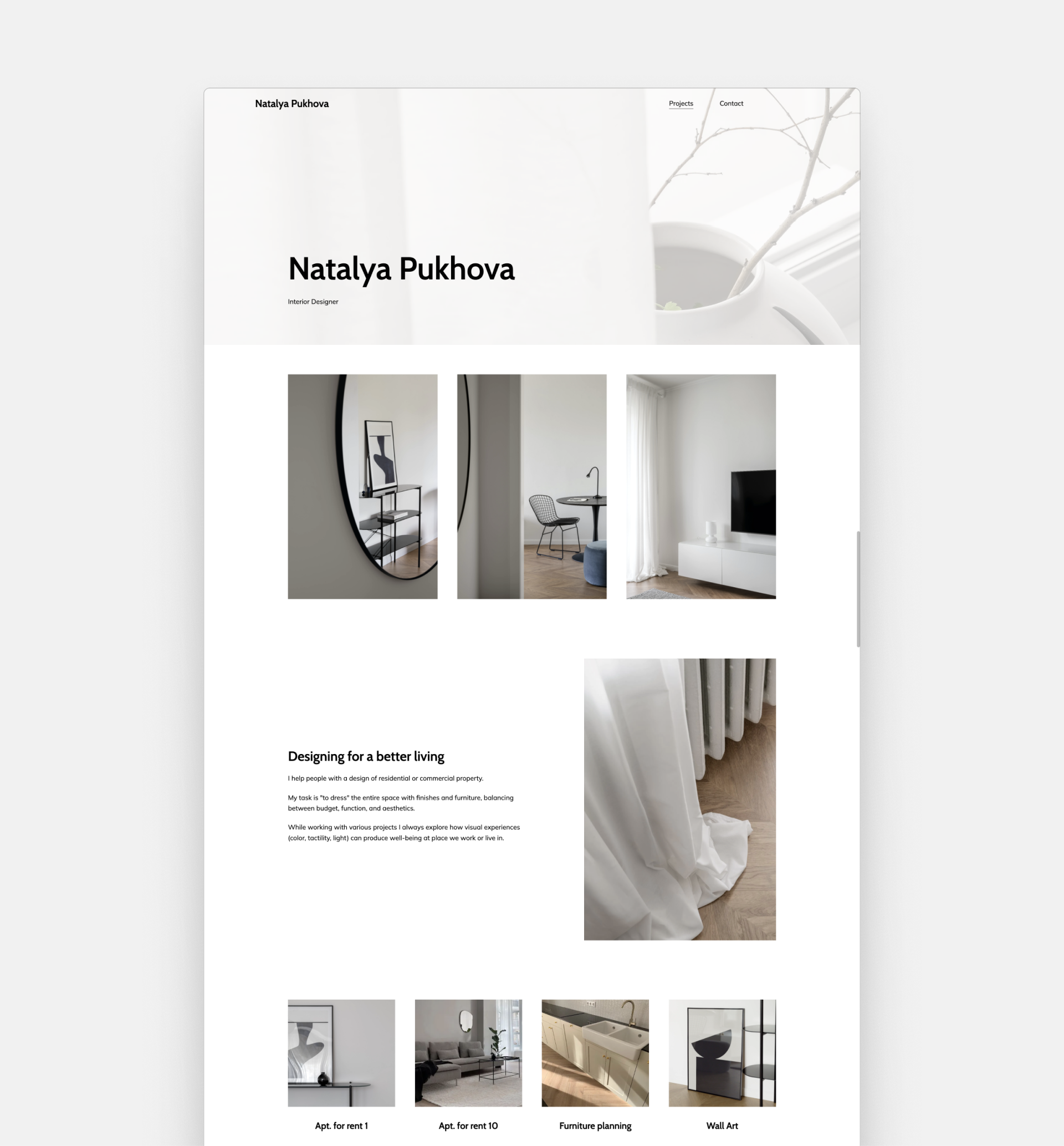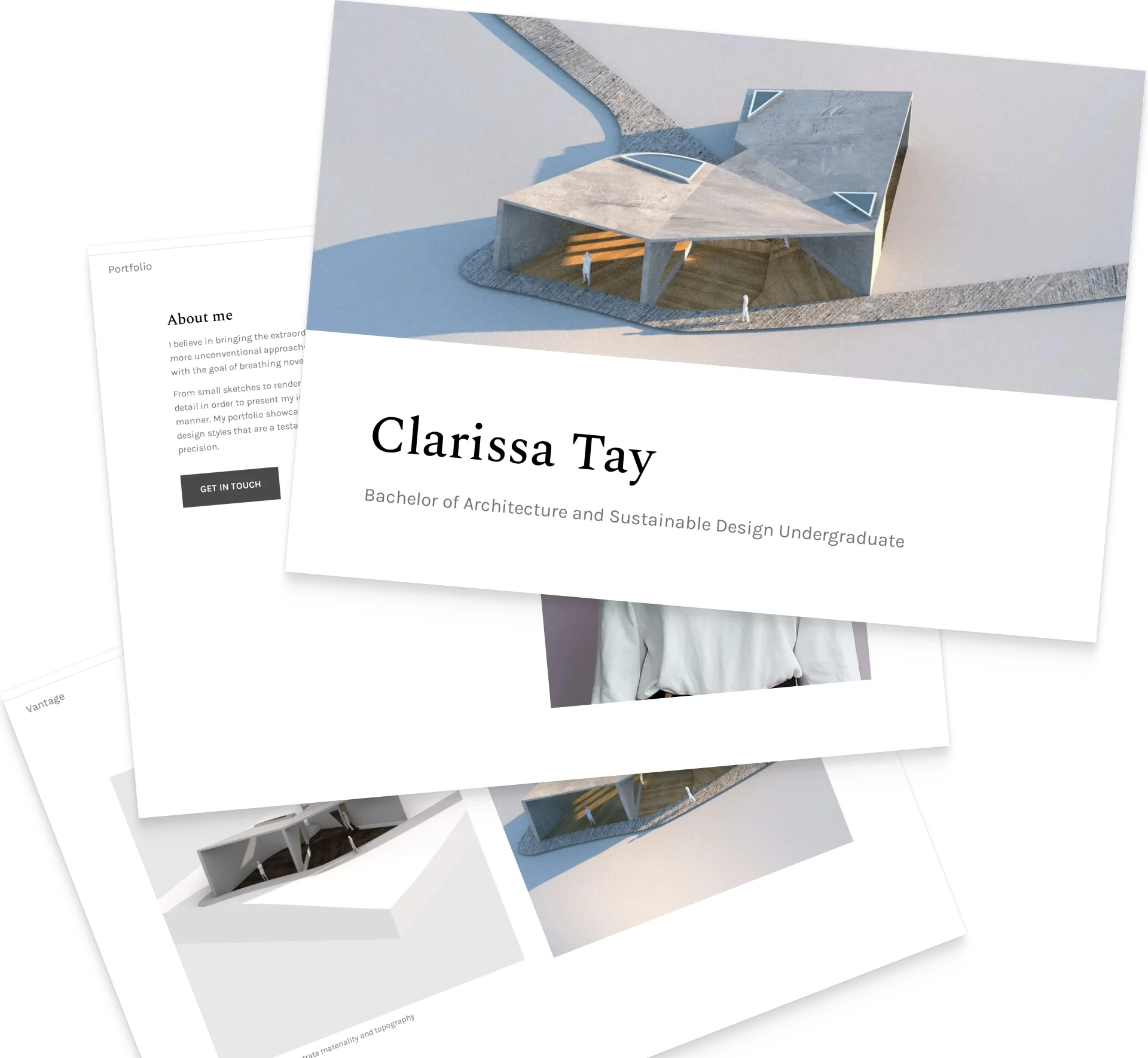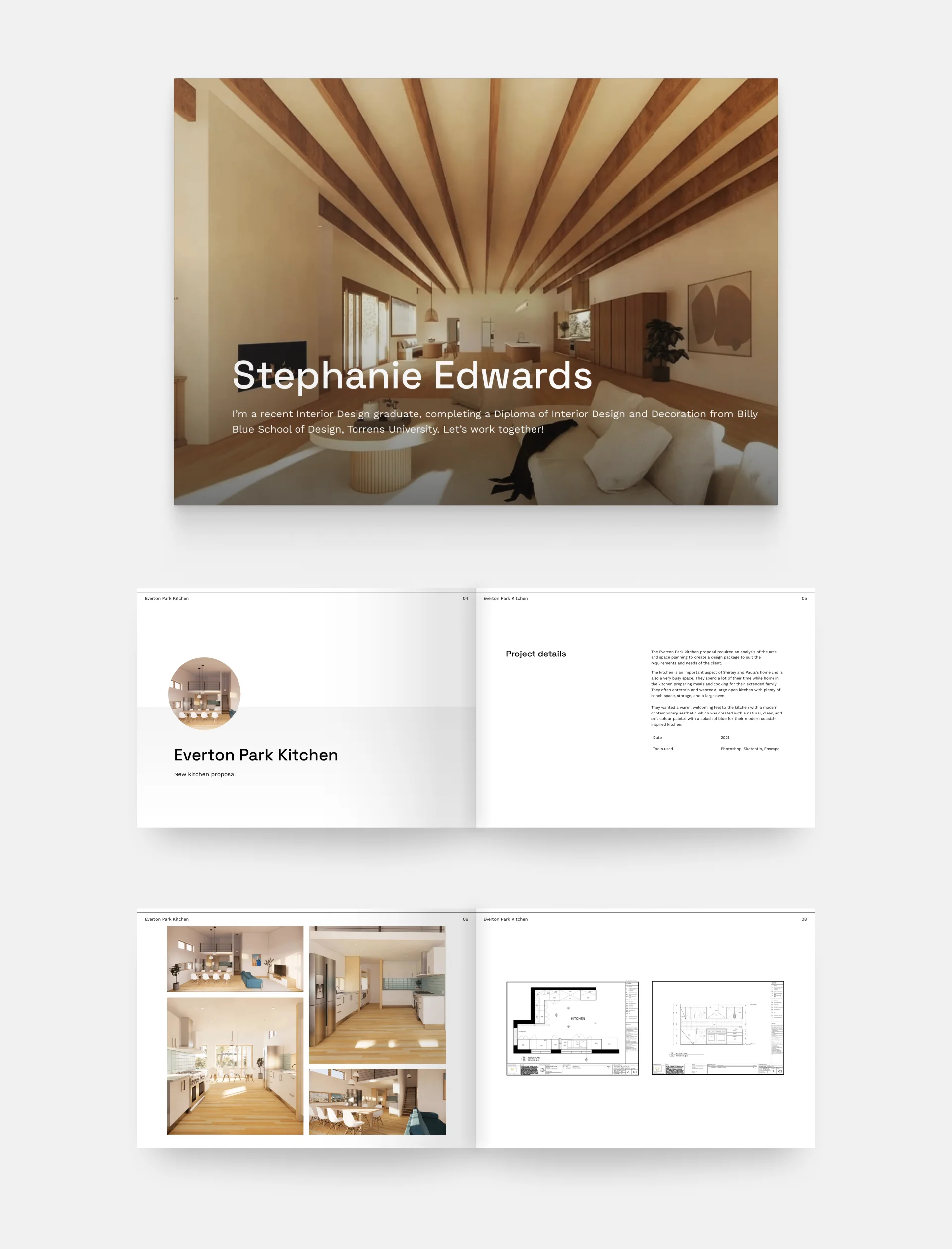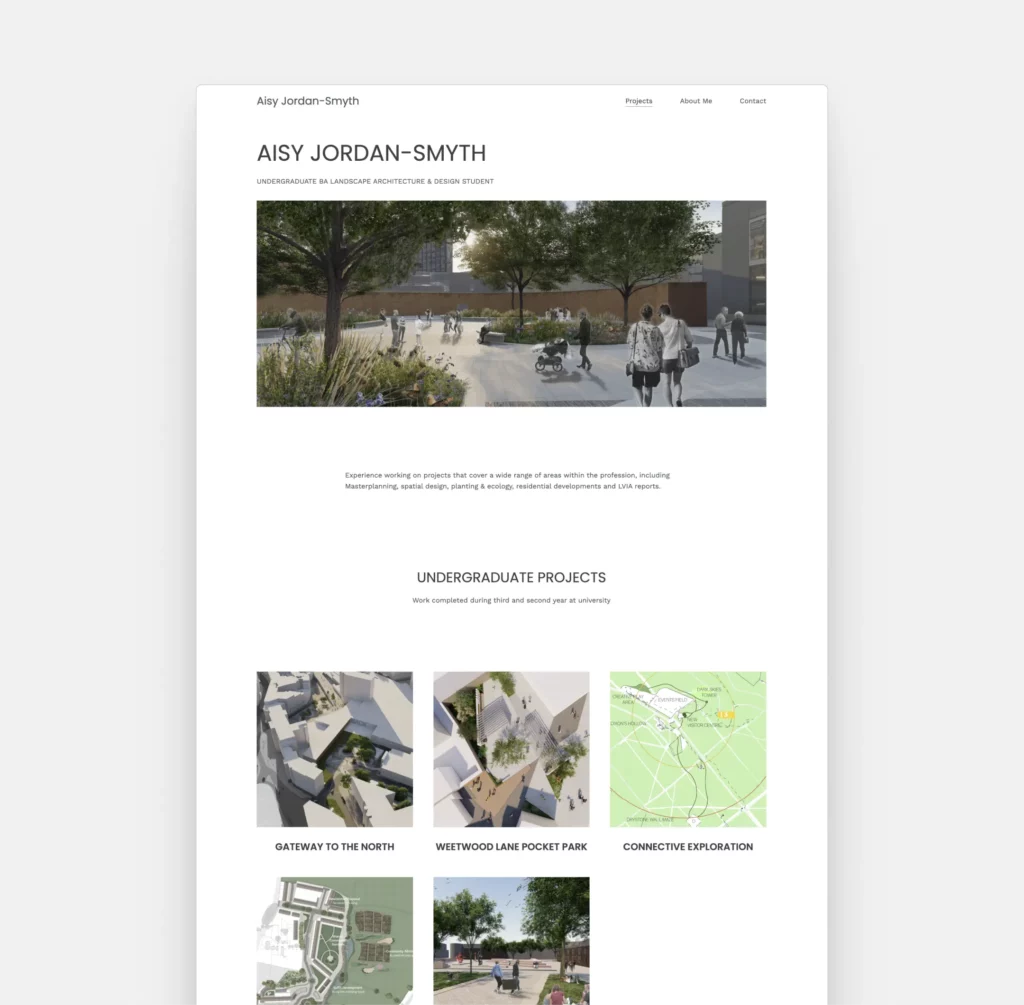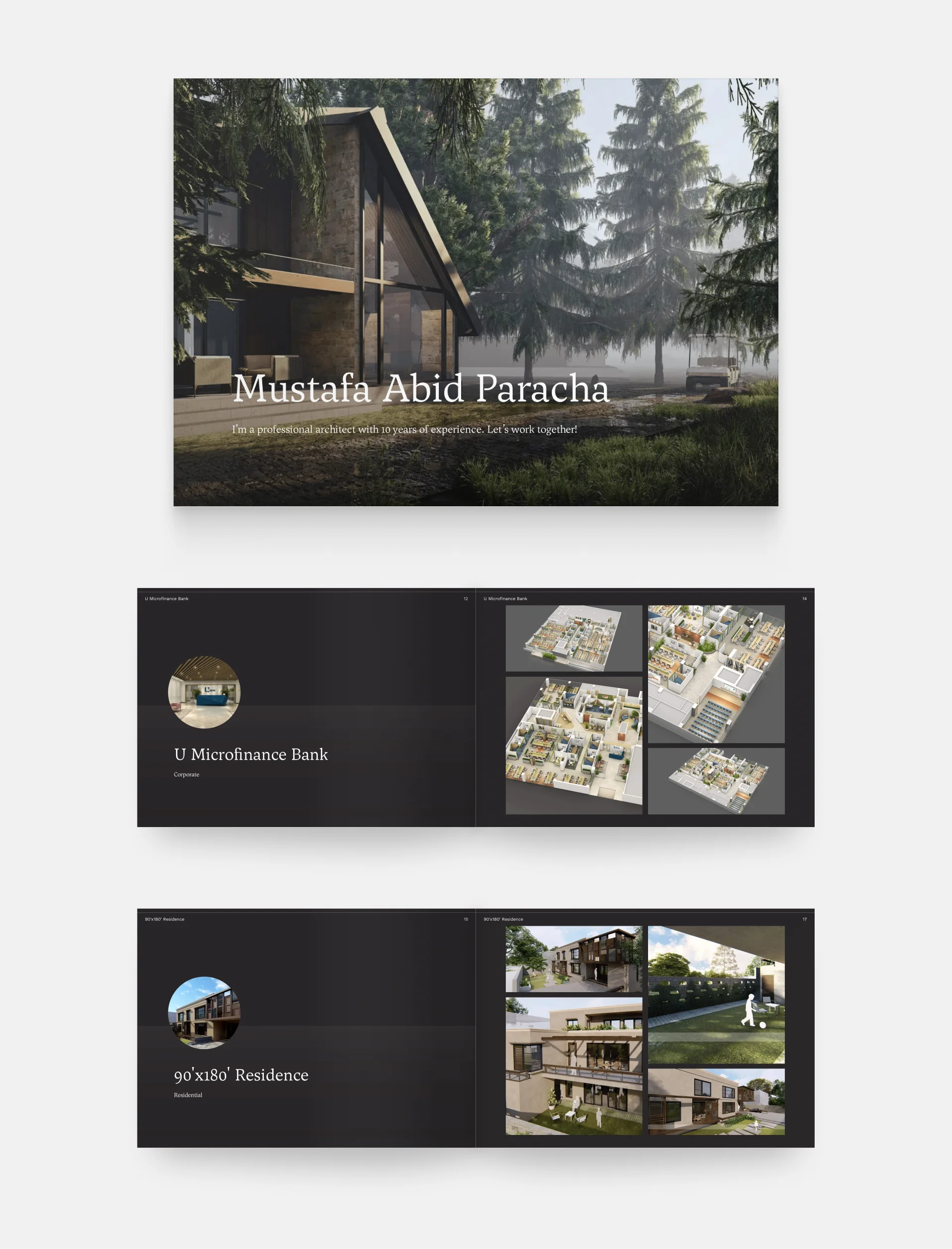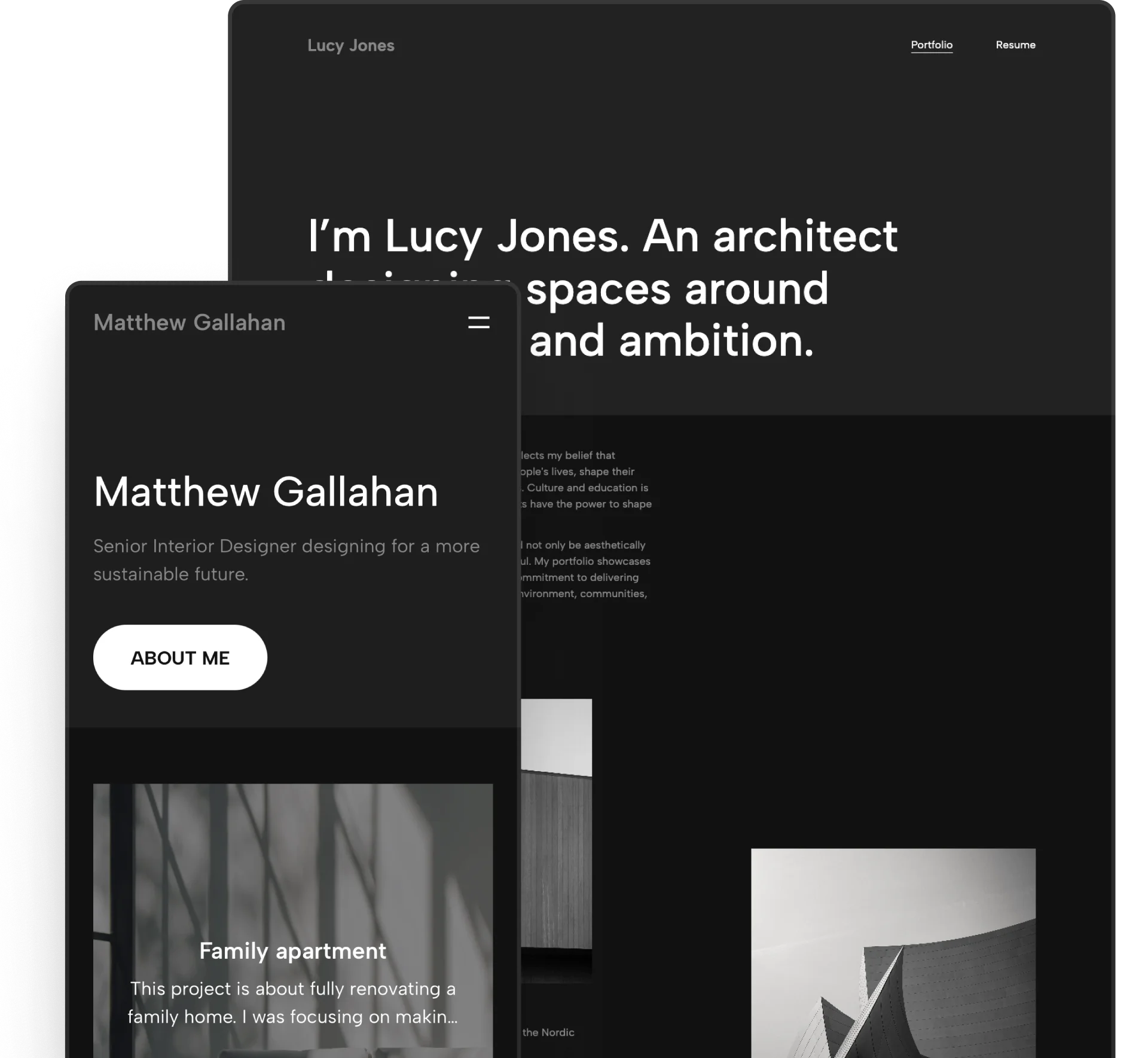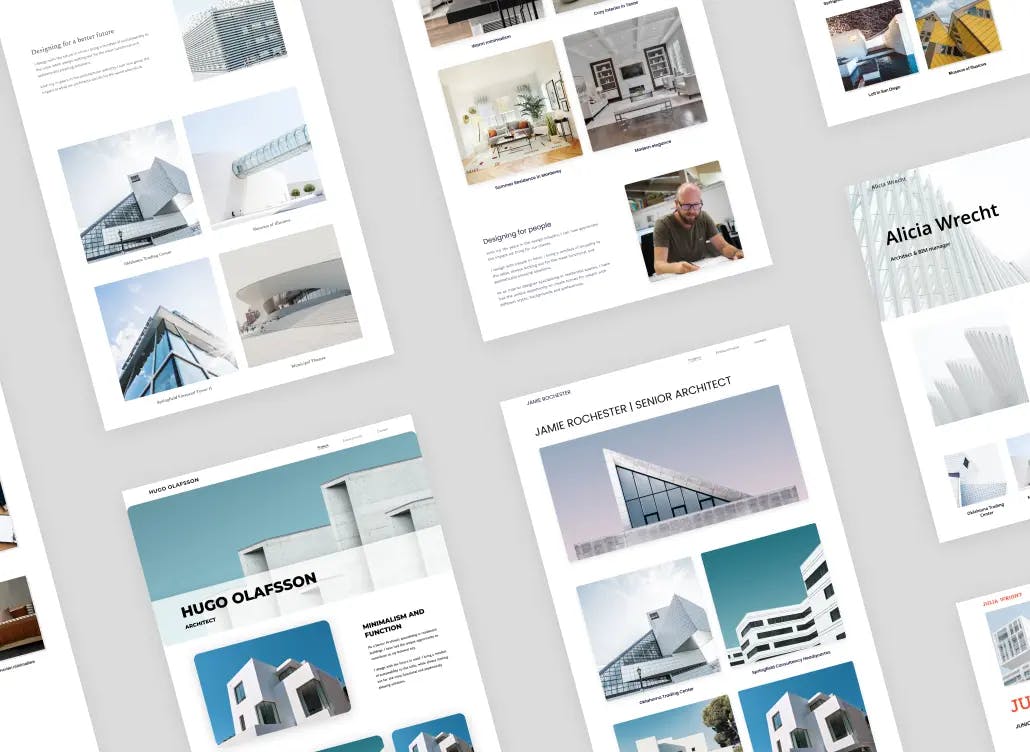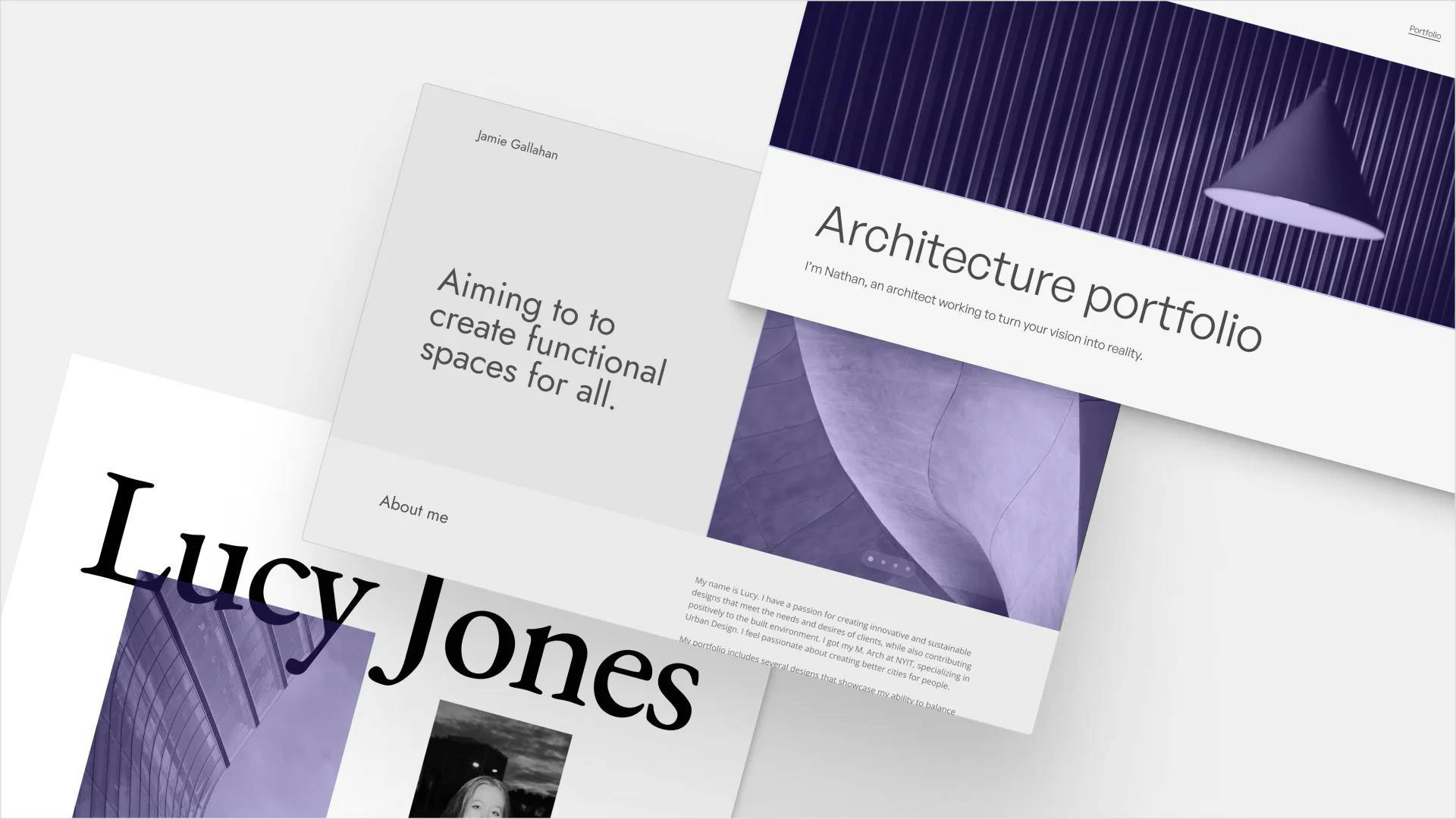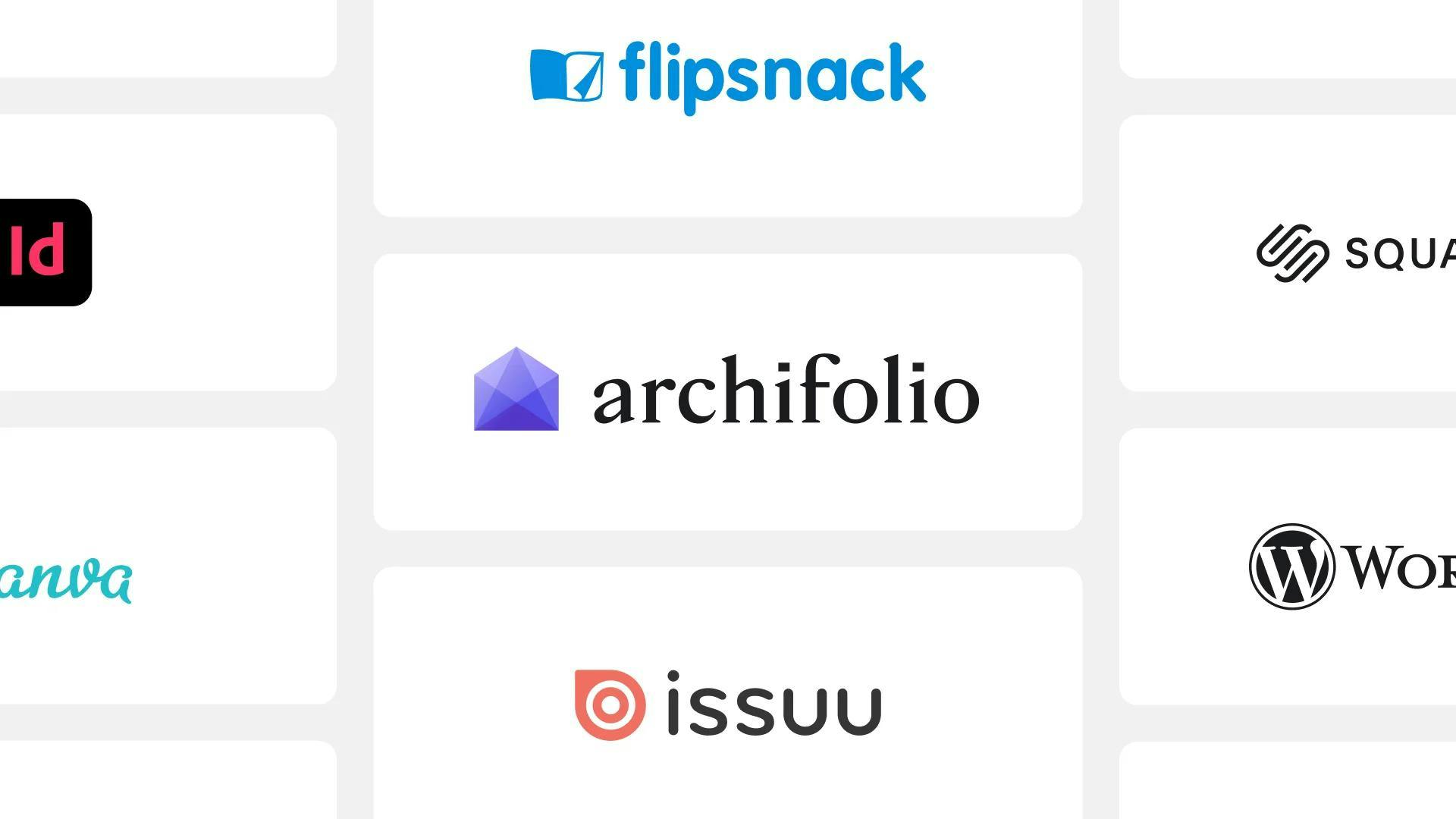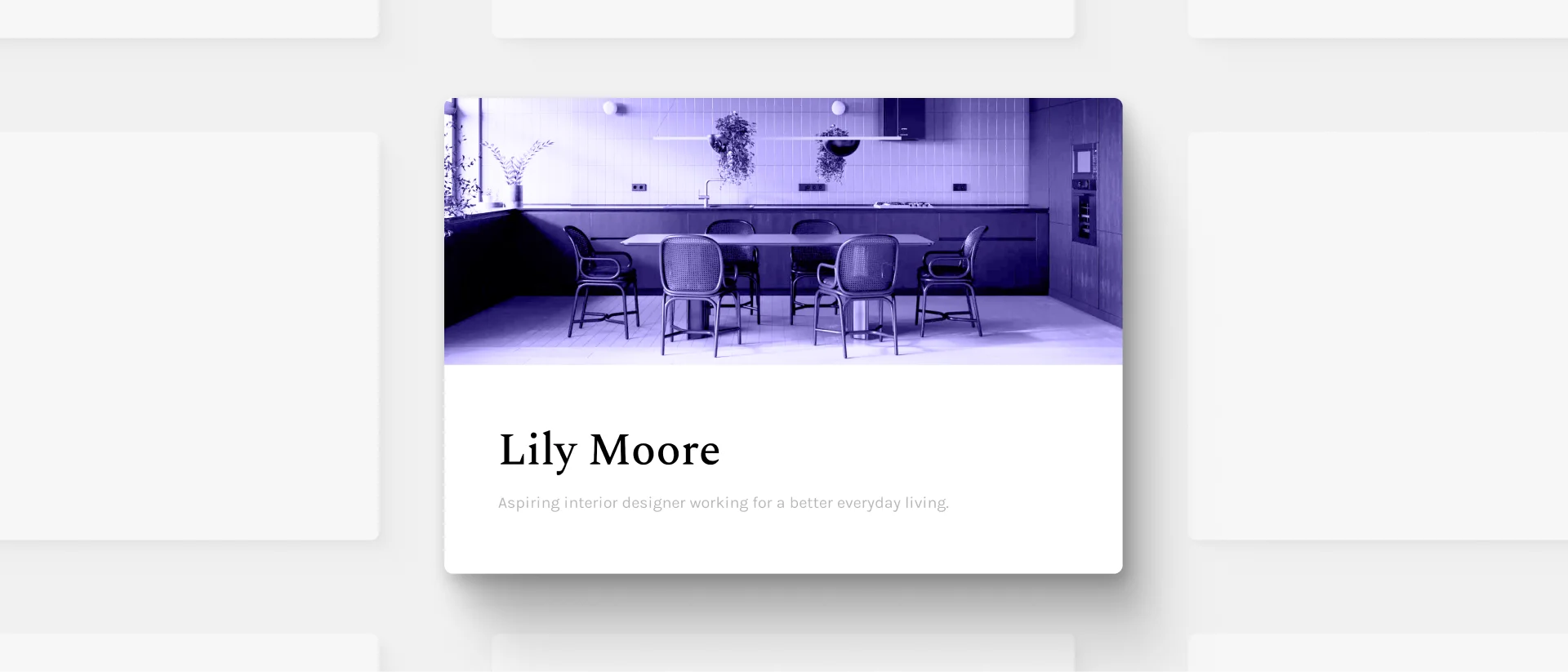
11 Tips to Stand Out With Your Architecture Portfolio Cover + 13 Examples
You know you have to make an outstanding first impression whenever you submit an application. But the question is: How? There’s only one page in your portfolio that everyone will see. And that’s your architecture portfolio cover.
So now let’s look at some inspiring examples and what they teach us, shall we?
#1 Keep It Simple, but Interesting
Clarissa Tay's portfolio cover
Template: Agora
Clarissa Tay created a minimalistic but memorable portfolio cover. The focal point is a model-like rendering that captures attention and showcases the architect's design philosophy. The clever use of whitespace surrounding the rendering gives a sense of elegance and allows us to focus on the intricate details of the image.
Don’t be afraid to leave a good amount of white space in your cover.
#2 Be Clear – Include the Most Important Information
Deirdre Spahr's portfolio
Deirdre Spahr's architecture portfolio cover blends artistic expression with functional clarity. The main illustration immediately draws the viewer's attention and communicates the designer's artistic vision. The large, modern title font communicates a sense of contemporary design and establishes a clear visual hierarchy. They added the most important information right below, which adds a touch of professionalism and ensures that the cover is not only visually appealing but also conveys essential information.
Template: Museum
You don’t want your audience to wonder: Am I at the right place? Instead, include all the relevant information right on your cover.
#3 Show Your Originality
If you want to stand out among hundreds of applicants, you need to think outside the box. You can, for example, present your projects not just through images, but videos or 360° views. Or, you may create a video resume that makes an amazing first impression.
PDFs do not cater to this functionality, but you can create an architecture portfolio website and place them there.
The cover there is your above-the-fold section (or hero section). You have the same rules to follow as in a PDF portfolio. Make it memorable and hook your audience.
Natalya Pukhova's portfolio website
Just like Natalya did in her interior design portfolio. She has a clear navigation bar and a well-thought-out layout. She managed to create a modern yet cozy look on her portfolio cover by including a low-contrast, bright hero image.
Template: Museum
Stand out from the crowd by showcasing your projects on a portfolio website page.
We hear you thinking to yourself: Creating a website? I don't have time to build a website and make a PDF portfolio. So why bother?
It's because you no longer have to create a website and a PDF separately. You can simply create an Archifolio portfolio, and use that as a website or export it as a PDF.
And that's not all: Archifolio comes with stunning templates, narrative blueprints, color palettes, font presets, and portfolio layouts that follow the industry best practices.
#4 Give a Sneak Peak
Stephanie Edward's portfolio
The cover of Stephanie's architecture portfolio gives you a taste of her style and projects alike. It features a rendering of the designer's (presumably) favorite project; a modern, but cozy interior with exposed beams. What we love about this image is the strategic placement of the beams, which not only presents her abilities as a designer but also skillfully guides the viewer's attention to the title of the portfolio.
You can use snippets of the work you’re including in your portfolio to make your audience interested in what’s inside.
Aisy Jordan-Smyth's website
Aisy Jordan-Smyth’s portfolio starts with a stunning render from one of her projects. It shows how her plan will be used, which is intriguing enough that we want to see more. Other than her projects, she’s kept it minimal, which allows her images to shine.
Don’t be afraid to show a certain perspective of your designs right at the beginning. Just keep everything around it minimal.
#5 Showcase Your Skills
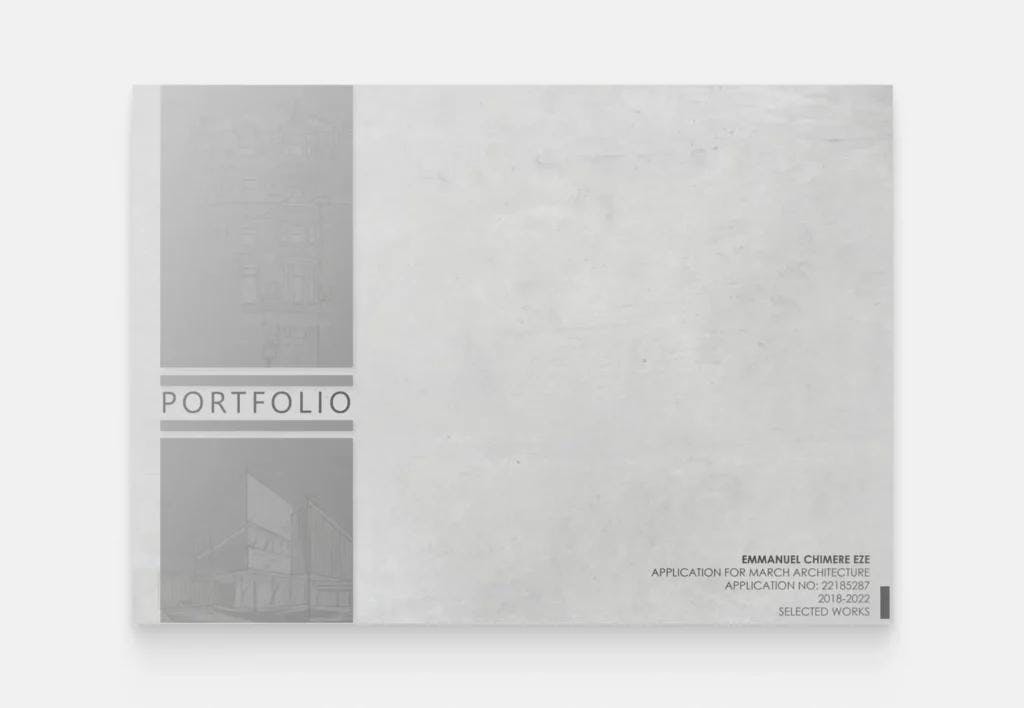
Cover page example by Emmanuel Eze
Keeping your PDF portfolio under 10 Mb isn’t an easy task, and often you won’t have room for sketches inside. However, Emmanuel Eze managed to include them subtly on his cover. Perfect solution!
Your sketching skills can be showcased on your portfolio cover if you don’t have room for it inside.
#6 Keep It Consistent
Melissa Domenici's portfolio website
The above-the-fold section of Melissa's portfolio is a stylish introduction to a sophisticated collection of projects. The hero is brought to life with an interactive slider, presenting highlights from the portfolio below. As you explore the pages within, there's a remarkable harmony—a consistent dance of colors, images, fonts, and layouts.
For a cohesive look, use the same fonts and colors in your portfolio as on your cover.
#7 Express Your Creativity
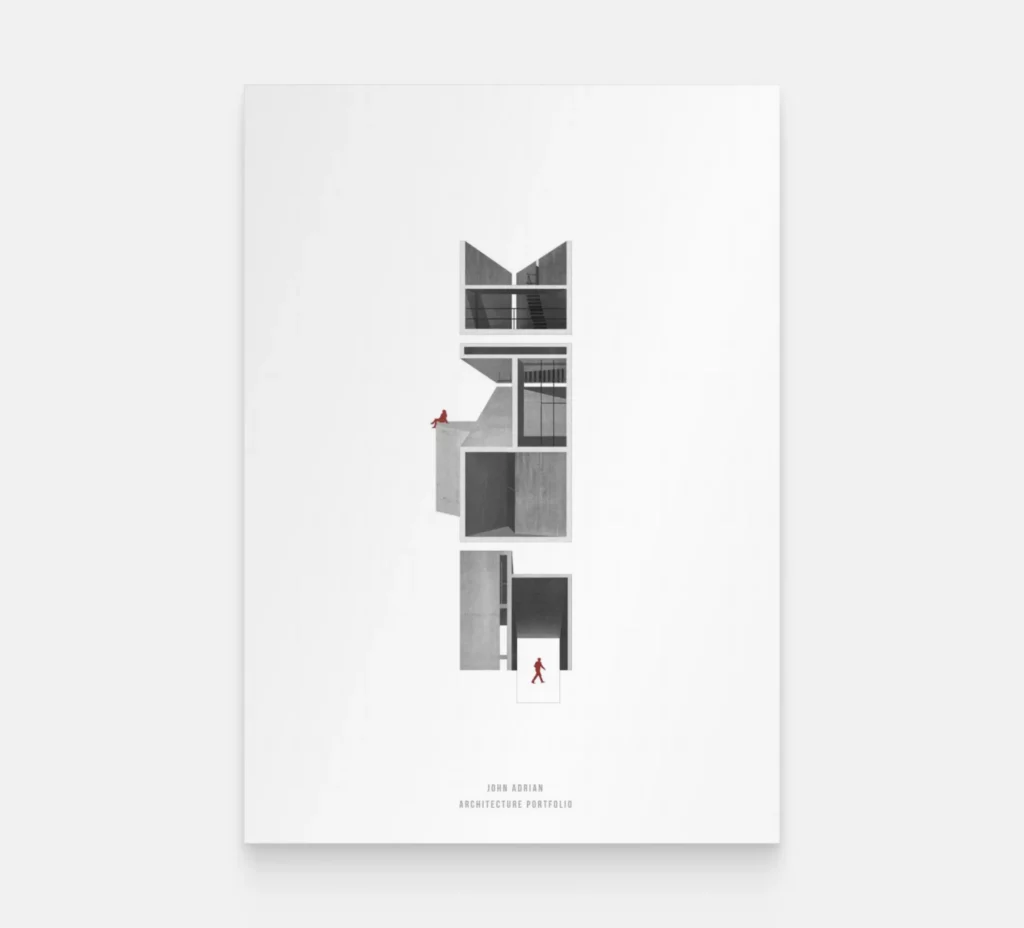
Portfolio cover example by John Adrian
John Adrian created a composition that is easy to understand, yet full of intricate details that keep our attention. He played well with the monochrome visual and the maroon accent color.
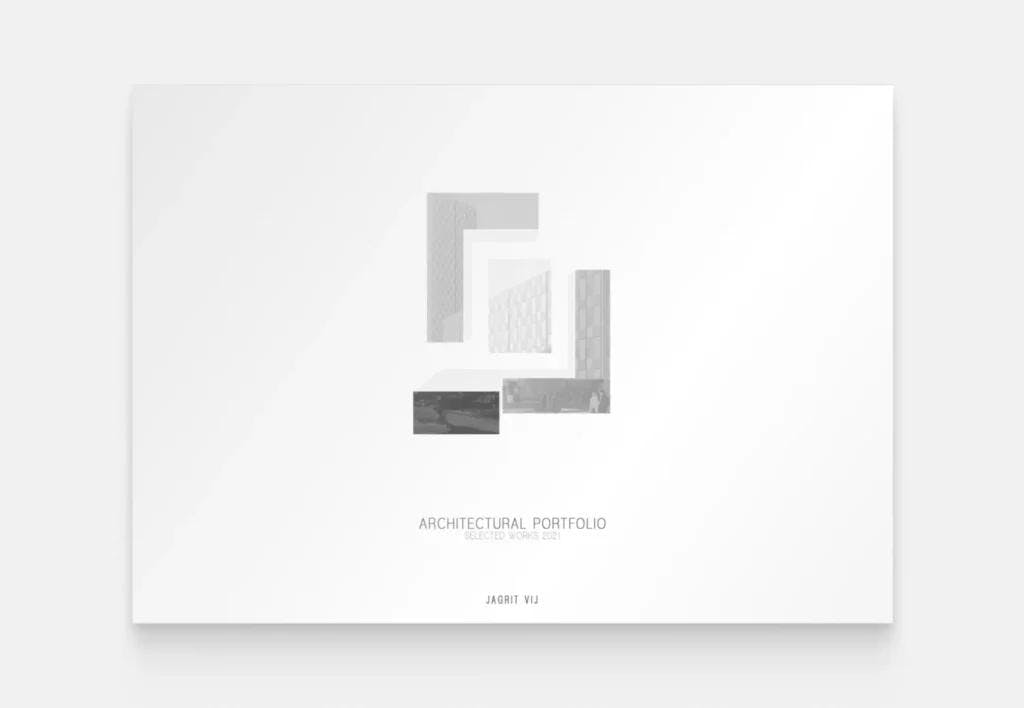
Example from Jagrit Vij’s portfolio
Jagrit Vij’s portfolio was created for landing an internship position. We love the originality of the building graphic. Not sticking to regular visualization rules, he’s managed to create something unique.
Let your creativity run wild. Try to let go of the rules and focus on what you’d like to express with your architecture portfolio.
#8 Make a Strong First Impression
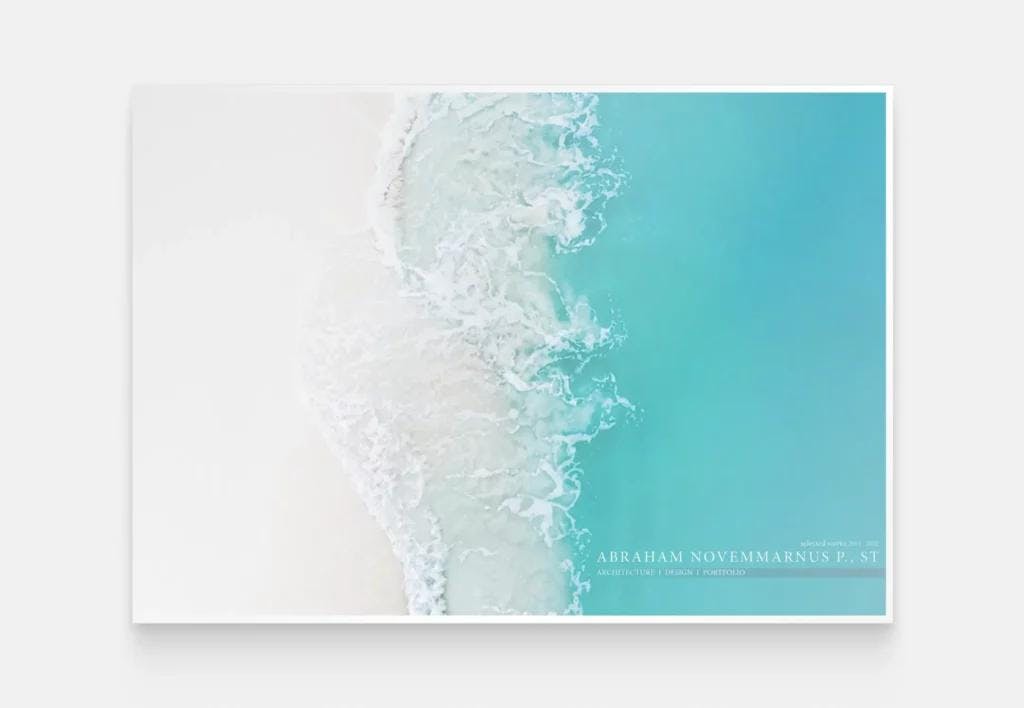
Abraham Novemmarnus' portfolio cover page
The portfolio of Abraham Novemmarnus is not something you see a lot of. If you put it next to 5 other portfolios, your eyes will definitely be drawn to this one. He used the sea as inspiration, creating the illusion of a sandy beach.
Think about how your portfolio will be received and how you could stand out from the crowd.
#9 Don’t Be Afraid of Using Colors
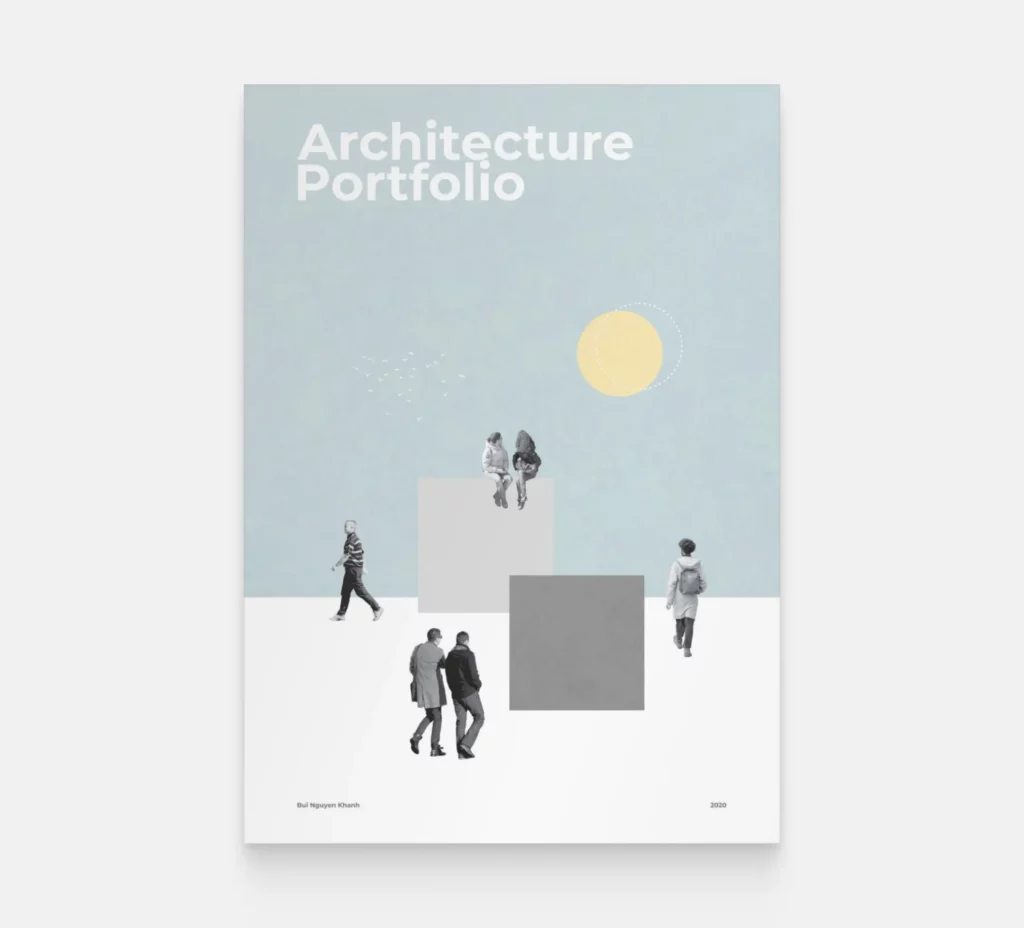
Cover page example by Bui Nguyen Khanh
We love how Bui Nguyen Khanh created an architectural composition without including the building itself. It shows the architectural vein. She used black and white cutouts but chose a dusty blue background.
While most architectural portfolios are black and white, feel free to experiment with colors. It will help you stand out among other portfolios.
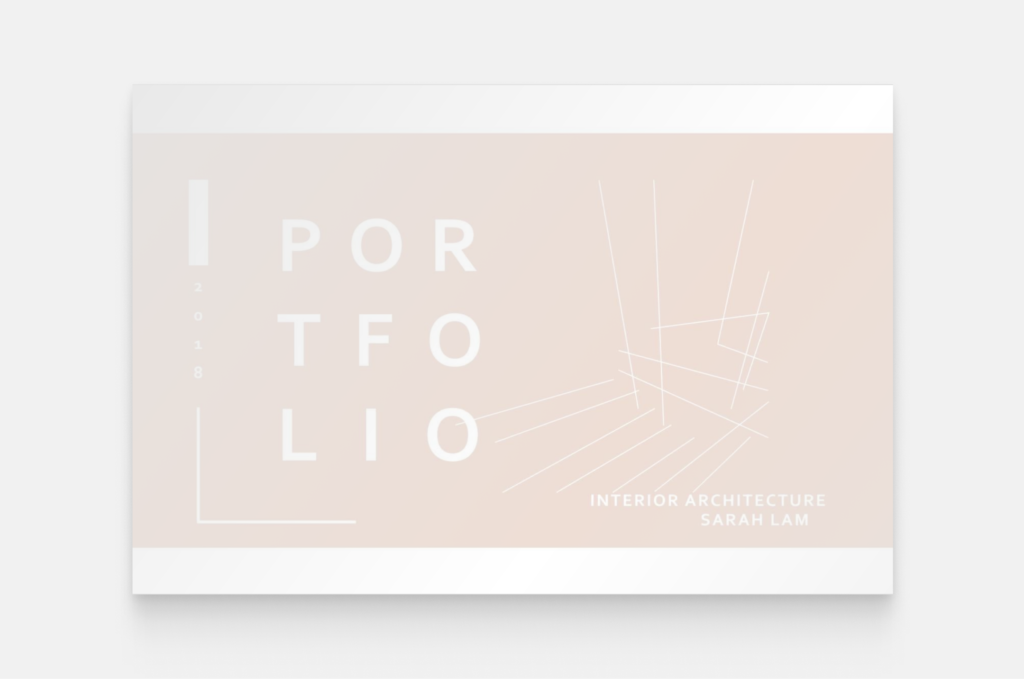
Sarah Lam’s cover page
Sarah Lam’s interior architecture portfolio is elegantly simple, but the touch of its faded pink color gives it liveliness. The subtle line drawings provide a visual reassurance that we’re about to see some stunning projects.
Don’t be afraid of using colors, but also consider how it will look if your portfolio is printed in black and white.
#10 Pay Attention to Your Images
Mustafa Abid Paracha's professional architecture portfolio
This cover not only invites us to discover more of Mustafa's work but also communicates a decade of expertise. It features a captivating, full-page background image of a beautiful render with greenery. The use of a serif font adds a timeless elegance to the cover, complementing the overall aesthetic.
If you’re using photography or renderings, make sure to opt for the best-quality for a good first impression.
#11 Use Typography to Your Advantage
Aksh Palan's portfolio website
Aksh's architecture portfolio cover commands attention with a bold and sleek design. The elegant dark background and bright text create a striking contrast. The hero section includes a dynamic slider that walks us through the project highlights. It's incredibly easy to understand their site thanks to the visual hierarchy achieved by following typography best practices.
Typography can help you guide your audience’s eyes from the most important information to the least important one. Use it to your advantage.
Key Takeaways – Summary
We’ve shared 11 tips with you throughout the article, so now let’s summarize what the architecture portfolio cover examples above have taught us:
- Keep your cover simple, but interesting.
- Be clear, and include the most important information (e.g. a title, your name, the date, etc.).
- Show your originality.
- Give a sneak peek into your projects.
- Showcase your skills, wherever possible.
- Keep your design consistent throughout your portfolio.
- Express your creativity on your cover page.
- Make a strong first impression.
- Don’t be afraid to express yourself with colors.
- Only use high-quality images.
- Use typography to your advantage.
Ready to Create Your Architecture Portfolio Cover?
If starting with a completely blank page isn’t your thing, we’ve got you covered.
With Archifolio you start with a stunning architecture portfolio template that will get your creative juices flowing. Then you can go ahead and customize it to fit your design style.
Plus, with Archifolio, you can easily create your portfolio in no time, thanks to our narrative blueprint and intuitive what-you-see-is-what-you-get editor. In addition, Archifolio provides a flexible way to share your portfolio, no matter if you'd like to send it as a link or as a PDF file.
